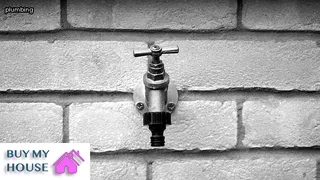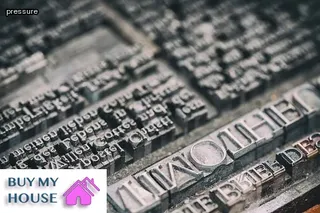Winter weather can be hard on plumbing, especially if a home has older pipes that are more prone to freezing and bursting. Water pipe bursting is a common problem in colder climates as temperatures drop and water inside the pipes freeze, causing them to expand and burst.
To help avoid costly repairs and damage to your home, here are some tips and strategies for preventing water pipe bursting: Insulate exposed pipes with pre-slit foam insulation or fiberglass insulation—this will help maintain the temperature of the water inside the pipes. Make sure there are no drafty areas around doors, windows, or other openings that could let cold air into your basement or crawlspace where pipes may be located.
Disconnect garden hoses from outdoor spigots before winter hits; this prevents water from remaining in the hose, which can freeze and cause the connected pipe to burst. Additionally, during extreme cold spells it’s recommended to leave a faucet dripping slightly so the pressure within the pipe does not build up due to an ice blockage.
Lastly, make sure you know where your main shutoff valve is located so you can quickly turn it off if a pipe does burst. Taking these simple steps can go a long way towards protecting your home from costly repairs due to water pipe bursting.

Pipe freezing and bursting is a major risk to homes, particularly in cold winter climates. As temperatures drop below freezing, water can form ice blocks inside pipes that can cause the pipes to burst.
To assess the risk of pipe freezing and bursting, it is important to look at factors such as the age of your home’s plumbing system, the insulation in walls and attics, where pipes are located and other environmental elements that could increase the chances of frozen pipes. Older homes are more likely to have plumbing systems with inadequate insulation which can lead to water freezing before it reaches its destination.
The location of pipes can also influence their susceptibility to freezing; for instance, exposed pipes or those running along unheated exterior walls are more at risk than those within heated spaces. It is also important to consider local climate conditions when assessing the risk of pipe freezing since extreme cold temperatures increase the likelihood of frozen and burst pipes.
Taking these steps can help you identify areas where additional measures may be necessary to protect your home from pipe bursting due to frozen water.
The winter season can wreak havoc on a home's plumbing system, and one of the biggest dangers is frozen pipes. Although homeowners may not be able to prevent the outside temperature from dropping below freezing, they can identify signs of a frozen pipe before it bursts.
If pipes are located in an unheated area or on an exterior wall, they are more likely to freeze. Also, look for frost on exposed pipes – this is a sure sign that the water within has turned to ice.
Other indicators include decreased water pressure and discoloration of the water coming from faucets. If any of these signs are present, it is important to take action quickly by first turning off the main water valve and then attempting to thaw out the pipe using safe methods such as a hair dryer or heating pad.
By being aware of these warning signs and taking proactive steps to protect your home from frozen pipes, you can avoid costly repairs and keep your family safe during cold weather months.

When your pipes have burst, it can be a very stressful and chaotic situation. In order to avoid the mayhem that can come with frozen pipes and pipe bursting, there are several preventive measures you can take.
First, make sure you know where your main shut-off valve is located in case of an emergency. You should also insulate exposed pipes in unheated areas such as basements and attics to minimize the risk of freezing temperatures affecting them.
Additionally, make sure that all faucets on exterior walls are turned off and disconnected during winter months. Furthermore, if you’re going away for an extended period of time, set your thermostat at a temperature which will prevent freezing temperatures from occurring.
Lastly, if you suspect that any sections of plumbing may be vulnerable to freezing or bursting due to poor insulation or other issues, contact a plumber as soon as possible for a professional assessment and repair. Taking these steps now can help protect your home from further damage down the line and save you from costly repairs in the future.
When a pipe bursts in your home, it can cause extensive and expensive damage. Not only will the flooding ruin carpets, furniture, and other belongings, but it can also create the perfect environment for mold to thrive and grow.
In addition, a frozen pipe burst can lead to costly repairs of both the pipe and the area that was damaged by water. Without proper maintenance and prevention methods, you may be at risk of dealing with a water pipe burst in your home.
Therefore, it is important to understand the consequences of a water pipe burst as well as take proactive steps to prevent frozen pipes from occurring in order to protect your home from possible destruction.

Investigating the causes of pipe freezing and bursting is important to prevent damage to your home. Cold weather can lead to problems like frozen pipes, which can burst if not addressed quickly.
In order to avoid frozen pipes, it's essential to take extra precautions in colder months, including insulating exposed pipes and keeping the home warm enough so temperatures don't drop below freezing. It's also important to make sure that the heating system is working properly and that there are no gaps or leaks in the insulation around windows and doors.
Additionally, running water regularly throughout cold days helps keep temperatures up and prevents pressure buildup in the pipes. If you experience a problem with freezing or bursting pipes, contact a professional as soon as possible for help with repairs or replacements.
Taking proactive steps now will help ensure your home stays safe from frozen and burst pipes during cold weather.
Knowing which type of pipes are susceptible to bursting is a critical step in preventing pipe bursts and protecting your home from the damage they cause. Copper and galvanized steel pipes are especially vulnerable, as the extreme cold can cause them to contract, weakening their structure and making them more prone to bursting when water expands inside them.
On the other hand, CPVC and PEX pipes are generally more resistant to freezing temperatures, as they are better able to expand with the flow of water. Furthermore, you should be aware that if you have plastic or PVC pipes installed in an unheated area of your house, they may also freeze since they lack insulation.
To minimize this risk, make sure that all exposed piping is adequately insulated with foam or fiberglass insulation sleeves. Additionally, any pipes located near exterior walls should be equipped with heat tracing systems that help maintain internal temperature levels above freezing point.
By taking these precautions you can ensure that your home’s plumbing system remains safe and secure against winter weather conditions.

The impact of corrosion on water pipes is an issue that needs to be addressed in order to prevent pipe bursting. Corrosion can cause significant damage over time, weakening the metal and making it more prone to bursting when exposed to freezing temperatures.
It’s important to regularly inspect pipes for any signs of corrosion and take steps to replace or repair any corroded pipes before they become a major problem. Additionally, taking proactive steps such as insulation or wrapping the pipes in heat tape can stop the problem from ever occurring in the first place.
Taking these measures can help protect your home from dangerous pipe bursts due to freezing temperatures and the corrosion of metal water pipes.
When a pipe freezes, the water inside expands, putting pressure on the metal walls. The longer this pressure builds, the greater the risk that the pipe will burst.
To understand how long it takes for a frozen pipe to burst, it is important to first consider why pipes freeze in the first place. The combination of cold temperatures outside and insufficient insulation around pipes can cause them to freeze quickly.
As soon as water stops flowing through a pipe, it begins to cool down and eventually freeze. This can happen in only a few hours if temperatures are low enough and insulation around the pipes is inadequate.
Once a pipe is frozen, any further decrease in temperature or additional pressure from expanding water can increase the risk of bursting. To prevent this from happening, homeowners should take steps to protect their pipes from freezing by using insulation and keeping heat sources like space heaters near exposed pipes during cold weather.
Taking these preventative measures can help avoid costly repairs resulting from frozen and burst pipes.
Pipe bursts are a common problem for homeowners, but luckily, there are several things you can do to prevent them from occurring. In order to better understand why pipes burst and how to protect your home from frozen pipes, it’s important to first understand the causes of pipe bursting.
The most common reasons pipes burst include: cold temperatures, improper insulation, inadequate plumbing system maintenance and water pressure that is too high. Cold temperatures can cause the water in your pipes to freeze and expand, causing the pipes to crack or burst when the temperature rises again.
Improper insulation allows cold air into your pipes, while inadequate plumbing system maintenance can lead to weak connections between joints or cracks in the pipe itself. Overly high water pressure can also put too much strain on your pipes, leading to cracking or bursting.
Taking steps such as properly insulating your pipes and regularly inspecting your plumbing system can help you avoid these issues and protect your home from frozen pipes that could potentially cause pipe bursts.

A pipe bursting in a house can be a costly and time-consuming repair. It is caused by the expansion of water when it freezes inside a pipe, causing it to burst and potentially flood the home.
This is why it is important to take preventative measures to ensure that pipes are properly insulated and free from blockages that cause water pressure to build up inside the pipe. There are several steps homeowners can take to help avoid frozen pipes and protect their homes from possible damage.
Insulating exposed pipes, running a trickle of warm water through them during freezing temperatures, keeping cabinets open so warm air can circulate around plumbing fixtures, and removing any debris that could accumulate in pipes are all effective methods for preventing pipe bursting. Additionally, keeping an eye on outdoor faucets and hoses should also be part of a homeowner's winter preparation plan to avoid potential pipe bursting issues.
If a pipe bursts, it is often immediately noticeable. Signs of a burst pipe include reduced water pressure, sudden drops or spikes in your water bill, and visible leaking from the pipe.
If you notice any of these signs, you should immediately take action to repair the burst pipe. In some cases, a loud sound or noise may alert you when a pipe bursts.
It is important to be aware of the sound of running water in your home so that you can detect any changes that may indicate a burst pipe. Additionally, if any pipes run through unheated areas in your home such as an attic or basement and are exposed to cold temperatures, they may be more likely to freeze and burst than those in warmer areas.
To prevent this from happening, it is important to make sure all exposed pipes are insulated properly and heated with blankets or space heaters in extreme temperatures. Taking these proactive steps can help protect your home from frozen pipes and potential bursting incidents.